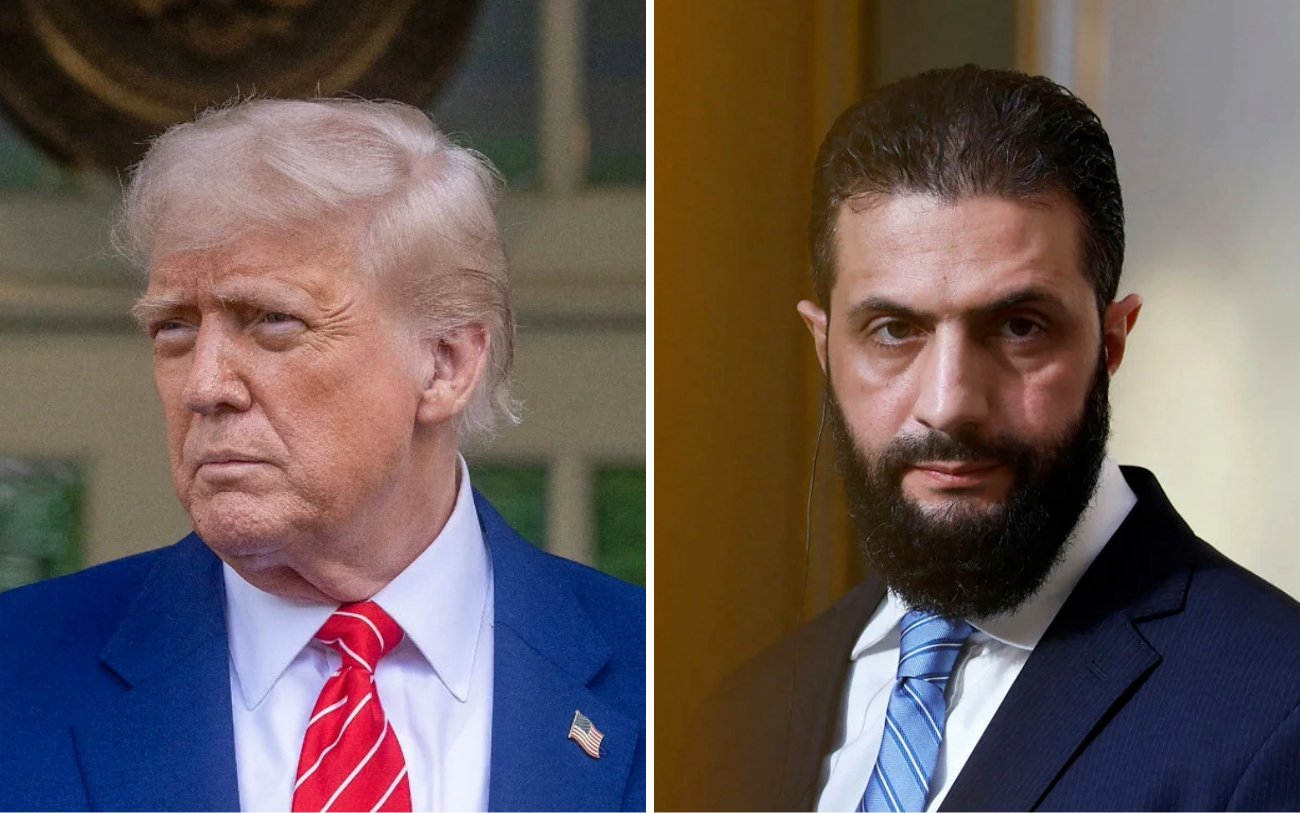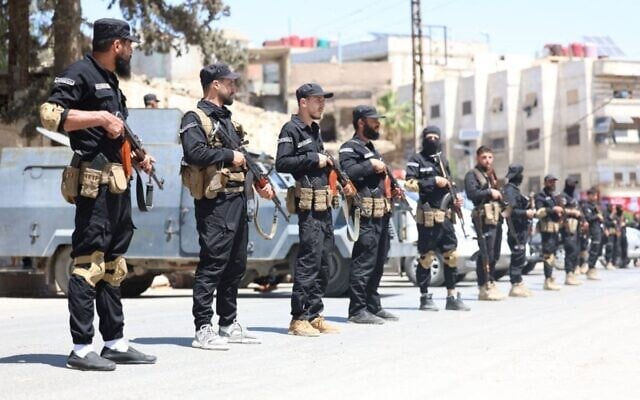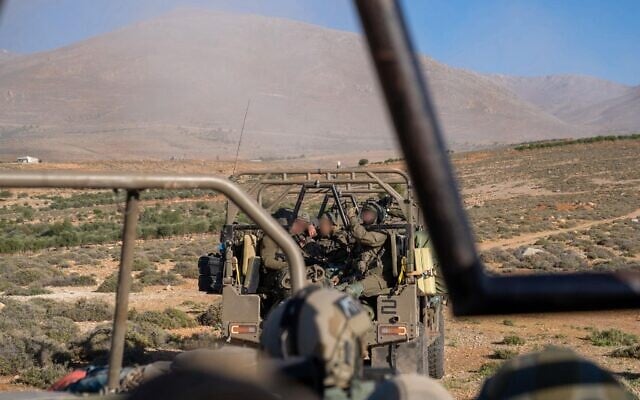



US President Donald Trump on Tuesday appeared to confirm that he will meet during his swing through Saudi Arabia with interim Syrian President Ahmed al-Sharaa, who may use the opportunity to raise the topic of normalizing ties with Israel.
Leaving the King Abdul Aziz International Conference Center, Trump stopped for a moment before getting into his limousine to answer a shouted question from a reporter, who asked if he would meet the Syrian president.
Nodding, Trump said, “I think so,” before climbing in the vehicle.
The Walla news site reported that a meeting between the two will take place Wednesday, citing unnamed sources with knowledge of the details. It would mark the first time a US president has met a Syrian head of state since 2000, when Bill Clinton met Hafez al-Assad.
According to the London Times, citing unnamed security sources, Sharaa may use the meeting to offer talks on normalizing relations with Israel under the Abraham Accords.
A US security source confirmed the possibility of Damascus joining the accords, with the United Arab Emirates as a mediator. Sharaa confirmed last week that Abu Dhabi is already acting as an intermediary between Israel and Syria, with talks focusing on security and intelligence matters and confidence-building between the two countries, which have no official relations.
The source added that Washington and Gulf countries are seeking to pull Syria away from Iranian influence. Iran, sworn to Israel’s destruction, propped up the former regime of Bashar al-Assad throughout the bloody Syrian civil war.
Israel has treated claims by Sharaa’s government that it won’t pose a threat to the region with intense suspicion, due to the new leadership’s roots in Islamism and jihadism.
“If Syria joins the Abraham Accords and the US uses that as leverage to bring them more to the West, that is a possibility and has been discussed,” the source told The Times.
Syrian activists and Gulf Arab states have been trying to arrange a meeting between Trump and Sharaa this week on the sidelines of Trump’s visit to Saudi Arabia, Qatar, and the United Arab Emirates.
Sharaa spoke with Saudi Arabia’s de facto ruler, Crown Prince Mohammed bin Salman, on Sunday, according to the Syrian presidency.
The London Times reported that some in the Trump administration were leaning against a meeting between the two, including National Intelligence Director Tulsi Gabbard and Trump’s counter-terrorism adviser Sebastian Gorka. However, US Special Envoy to the Middle East Steve Witkoff was said to favor closer ties with Syria.
Israel has been conducting airstrikes in Syria for years in a shadow campaign aimed at weakening Iran and its allies, including the Lebanese terror group Hezbollah, which grew in influence after entering the Syrian civil war on the side of former president Assad.
Israeli military operations have persisted since rebels ousted Assad in December, with Jerusalem saying it will not tolerate an Islamist militant presence in southern Syria. Israel has bombed what it says are military targets across the country, and Israeli ground forces have entered southwestern Syria, where they are currently stationed in a number of outposts near the border with the Golan Heights.
Reuters reported in February that Israel has lobbied the US to keep Syria decentralized and isolated, framing its approach around suspicion of Sharaa, who headed a local branch of al-Qaeda before renouncing ties to the group in 2016.
Israeli strikes earlier in the month followed days of clashes between Sunni Muslim and Druze gunmen triggered by a voice recording of unclear origin purportedly insulting the Prophet Mohammed, leaving more than two dozen people dead.
Jerusalem has vowed to protect the Syrian Druze, whose coreligionists reside throughout northern Israel, and the IDF has facilitated the evacuation of several Syrian Druze injured in clashes to receive medical treatment in Israel.
The fighting was the latest in a string of challenges for Sharaa, who has repeatedly vowed to unite all of Syria’s armed forces under one structure and govern the country, fractured by 14 years of civil war until Assad’s overthrow.
But incidents of sectarian violence, notably the killing of hundreds of pro-Assad Alawites in March, have hardened fears among minority groups about the now-dominant Islamists and sparked condemnation from global powers.


